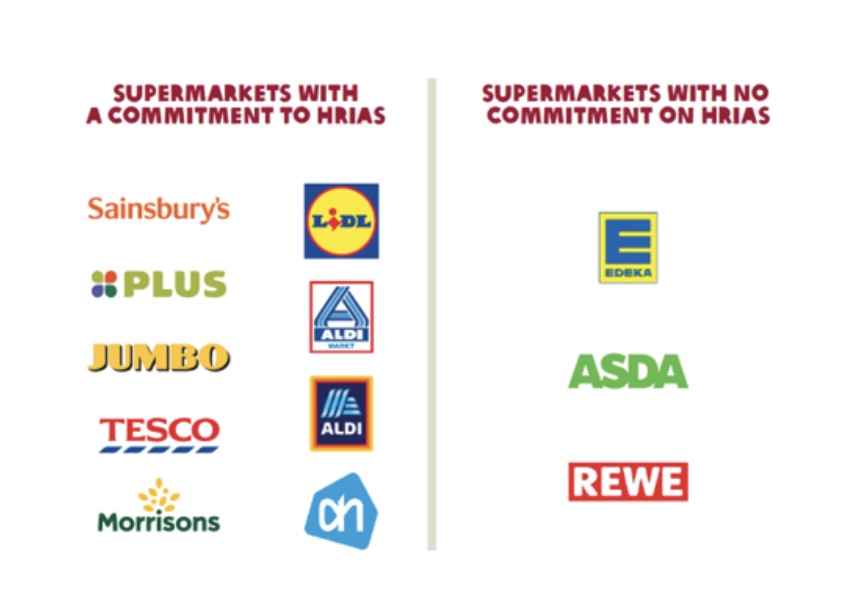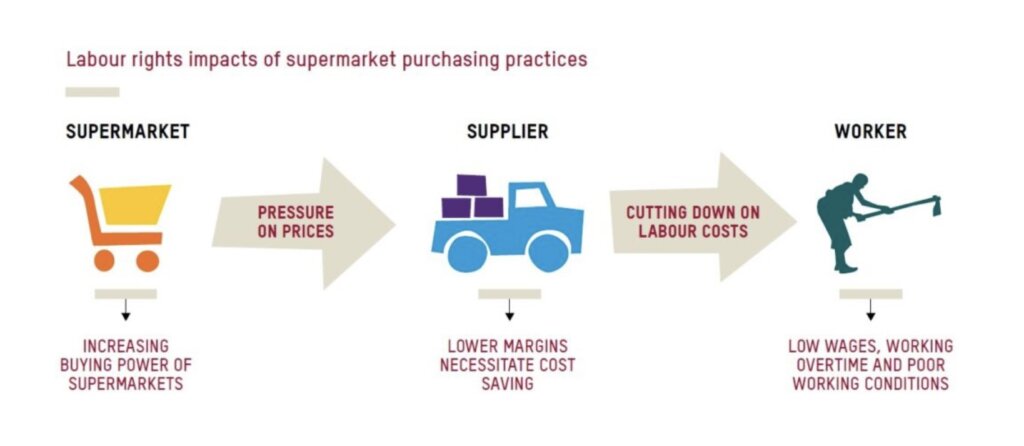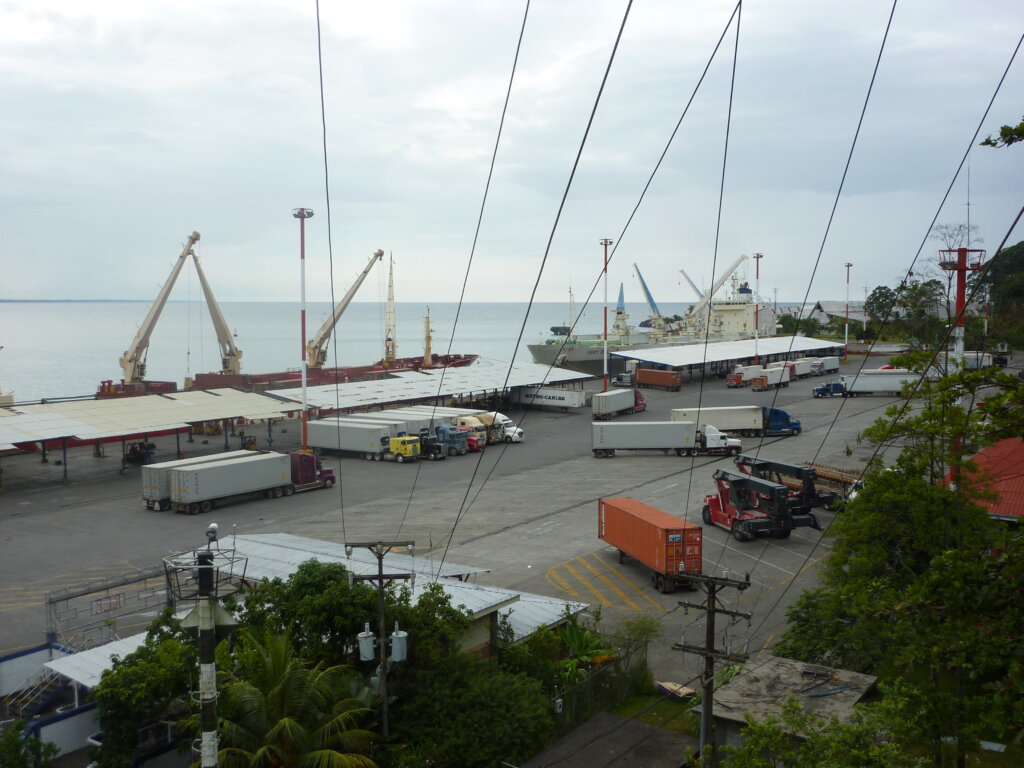This blog was written by Eline Achterberg and was originally published on Oxfam’s Views and Voices blog.
As supermarket shoppers across Europe loaded their trolleys with delicious food over the recent festive period, many will have had no idea of the human cost behind the products they picked from the shelves. The bleak reality is that it is still hard to avoid food produced in unfair and exploitative conditions.
A single supermarket sells thousands of different products through complex supply chains, many of which are characterized by high risk of human rights abuses. Yet even the companies selling these products often don’t grasp how much their business negatively impacts the people who make our food, let alone being on track to eradicate these abuses.
To address this, in 2018 Oxfam launched its global Behind the Barcodes campaign (also called Behind the Price in some countries) targeting supermarkets and publicly ranking their performance on human rights to pressure them to improve. In response to the campaign, a number of supermarkets in the UK, Germany and Netherlands improved and made new commitments to policies and practices that promote human rights.
A crucial tool to do this is the human rights impact assessment (HRIA), an in-depth analysis diving into a high-risk chain to understand the human rights impacts, from the perspective of rightsholders, and to formulate actions to stop abuses. In this blog, I introduce a new Oxfam briefing that spells out how supermarkets can both conduct such analyses better – and, crucially, use them to drive real action and change in workers’ lives.
A GOOD START ON HUMAN RIGHTS IMPACT ASSESSMENTS – BUT A LONG WAY TO GO
In recent years, several large European supermarkets have taken the positive step of conducting HRIAs and making the results publicly available. Albert Heijn (a subsidiary of Ahold Delhaize), Aldi Nord, Aldi Süd, Jumbo, Lidl, Morrisons, PLUS, Sainsbury’s and Tesco have each published one or more HRIA reports. Asda, EDEKA and Rewe have not made a commitment to conduct HRIAs and have not published any assessments so far.

These are great first steps and show the promise of HRIAs as a key tool to understand and remedy human rights abuses in food supply chains. But our new research shows that there’s also a lot of room for improvement.
HOW CAN SUPERMARKETS IMPROVE THEIR RIGHTS ASSESSMENTS?
We identify important gaps in the way supermarkets conduct their HRIAs. These include:
- Not focusing on or prioritising high-risk suppliers.
- Only looking at a limited range of human rights, rather than the full spectrum.
- Lacking internal and external capacity and expertise in research teams that conduct the assessments.
- Failing to engage the people whose lives need to be improved in a meaningful way and overlooking vulnerable groups.
- Failing to implement gender-responsive approaches that take account of the particular impacts on, and needs of, women workers.
- Failing to address root causes of abuses, such as the supermarkets’ own buying practices.
Crucially, HRIAs should help companies understand how their own activities affect these people. For supermarkets, this particularly relates to how they source and buy their products. The prices they offer, the way they negotiate, the requirements they impose: supermarkets’ sourcing practices all have a tremendous impact on the people who produce the food. After all, how can food producers ever earn a decent living when supermarkets refuse to pay prices that cover the cost of production?
FROM ANALYSIS TO ACTION, BY SUPERMARKETS AND GOVERNMENTS
As well as doing the analysis part better, for HRIAs to be a meaningful endeavour, it is absolutely essential that companies also tackle the human rights abuses that were found, by taking effective actions. After all: what’s the point of only understanding human rights abuses, but not really doing anything about them?
Our new briefing spells out how both the HRIA and the action plan need to be developed in close and meaningful consultation and continued dialogue to check progress with the people most concerned: workers, farmers and community members, including women. Transparency is also vital: Companies should publish HRIAs and action plans and actively share and socialize findings and planned actions with stakeholders.
Our report stresses the importance of action, as supermarkets rarely formulate effective action plans that really commit to changing their practices. In particular, talking about price and power seems to be a no-go area, even if many studies show that these are root causes of human rights issues in food production. This leaves us to question whether anything has really changed for the better for people producing our food if supermarkets remain uncommitted to truly changing their own behaviour.

The fact that several supermarkets are starting to assess the impacts of their business on human rights is a significant step forward. But much more is needed for meaningful and systemic change. Experience teaches us that we cannot rely on companies’ voluntary efforts and commitments alone: governments have a responsibility to level the playing field and make sure that all corporations respect human rights. That’s why we call in the paper for binding legislation to hold companies accountable and provide pathways for survivors of corporate abuse to get justice. Let’s all demand the groceries we buy every day in our supermarkets are free from abuse.
